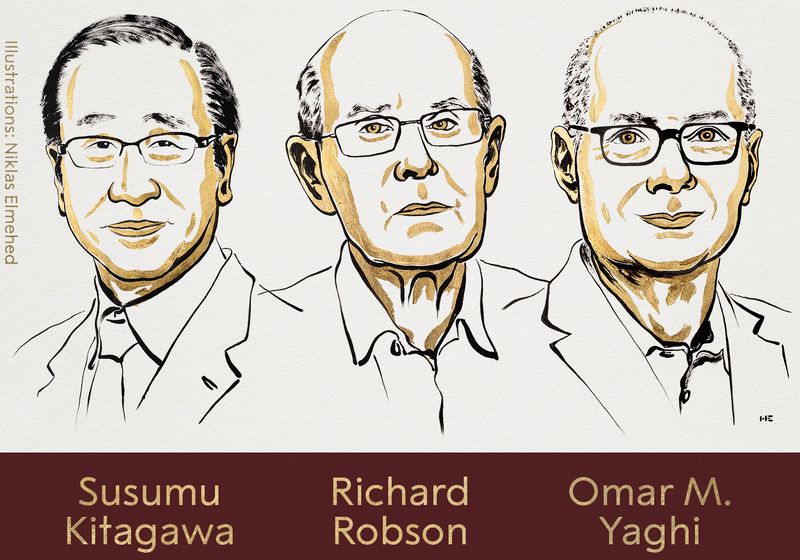The 2025 Nobel Prize in Chemistry goes to researchers who developed metal-organic frameworks, the Royal Swedish Academy of Sciences announced today (Oct 8). Chemists Susumu Kitagawa from Kyoto University, Richard Robson, from Melbourne University, and Omar Yaghi from the University of California, Berkeley, shared the prize.
“Imagine that the tools of chemistry could be used to create entirely new materials with unheard of properties, said Heiner Linke, a solid state physicist at Lund University and Chair of the Nobel Committee for Chemistry. “This year’s laureates have done just that.”
Kitagawa, Robson, and Yaghi synthesized materials containing metal ions and organic linkers to form crystals containing large cavities. Scientists can build such metal-organic frameworks using various building blocks to capture specific substances and impart the materials distinct properties. Researchers have been studying the applications of metal-organic frameworks in nanomedicine, including for drug delivery and imaging.
“Metal-organic frameworks are revolutionary porous crystalline materials with tunable structures and high surface areas,” Michael Dennis, Chief Science Officer at CAS, a division of the American Chemical Society, said in an email. “[Their] extraordinary versatility makes these materials as one of the most universally applicable platforms for addressing global challenges in virtually every sector, including environmental remediation, renewable energy, industrial catalysis, medical diagnostics, drug delivery, electronics, and sensing technologies.”
This is a developing news story. Details will be updated shortly.

